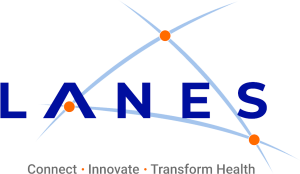California’s health data infrastructure just took a major step forward, benefiting LANES participants: Qualified Health Information Organizations (QHIOs) are now sharing Admit, Discharge, Transfer (ADT) data with other QHIOs under the Data Exchange Framework (DxF). For organizations in the LANES network, this shift supports a more comprehensive patient record. It also helps streamline workflows, ensuring care teams have timely access to hospital ADTs and patient information, especially benefiting patients who receive care from hospitals outside the LANES network.
Here are the top three things to know about this update.
1. QHIOs can now exchange data with each other, unlocking broader visibility.
QHIOs across California can now securely exchange data directly with one another. This allows those who are enrolled with LANES to access ADT and clinical information from outside the network, which is especially important when LANES participants are caring for patients or clients who visit hospitals or providers that participate in other QHIOs.
LANES is now receiving hospital Admit, Discharge, Transfer (ADT) notification from non-participating hospitals through other QHIOs. These ADTs are currently undergoing quality control. LANES participants will be able to access these notifications through the Smart Alert feature on the LANES portal in Q4.
2. There’s now more value for the LANES participant network.
LANES continues to add value to its data services. By receiving ADT feeds from other QHIOs, the volume of LANES ADT and encounter notification will double, covering the majority of acute care hospitals in Los Angeles and Orange County. LANES participants benefit not only from our unique and comprehensive patient information but also from expanded access to external systems. This ensures providers can stay connected to their patients—even when those patients seek care outside the LANES network—strengthening care coordination and improving outcomes across the region.
3. There are limitations to QHIO data sharing.
Not all QHIOs are created equal. LANES continues to lead in incorporating complex data types, including behavioral health data, sensitive, substance use disorder (SUD), and justice-involved data. While LANES participants benefit from access to comprehensive patient data, regulatory restrictions prevent these data sets from being shared through other QHIOs. Organizations interested in holistic views of their patients must enroll directly with LANES to access these unique data sets. LANES’ comprehensive datasets are a critical advantage for providers delivering whole-person care.
LANES is committed to the continued growth of a strong network that delivers usable, relevant, and coordinated information for better patient and client care. Learn more about its participants and participant network.

